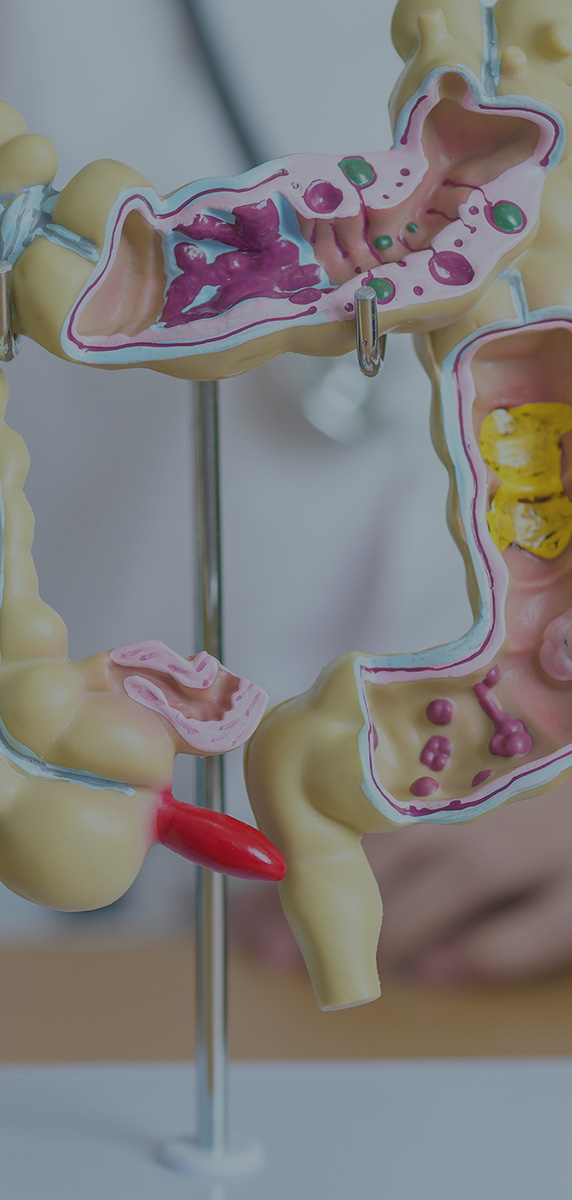INFLAMMATORY BOWEL DISEASE (Crohn’s Disease and Ulcerative Colitis)
Inflammatory Bowel Disease is characterized by inflammation in the gastrointestinal tract. Depending on where that is, characteristics of the bowel tissue, and specific symptoms, the diagnosis of Crohn’s disease (CD) or Ulcerative Colitis (UC) can be made.
Crohn’s disease can affect anywhere along the gastrointestinal tract and can present with many non-specific symptoms. CD can affect the oral cavity, the esophagus, the stomach, the small and large intestine, and the colon.
During an acute flair, bowel movements can be painful and urgent and often have visible blood in them. A person can experience 8-12 bowel movements in a day and this requires a colonoscopy for assessment. An acute flair typically requires pharmaceutical intervention to stop the cycle of inflammation and injury to the gastrointestinal tract.
In a sub-acute Crohn’s flare, patients can experience bowel frequency (5-8 bowel movements daily) and urgency, but rarely there is visible blood in the stool – although special testing can review blood. In this state, symptoms can often be resolved with dietary modifications and supplementation alone.
Ulcerative colitis is an inflammatory bowel disease that begins in the lowest region of the colon (near the rectum) and moves up the colon in a continuous fashion. UC is different from Crohn’s disease which can skip regions of the intestines and affect any part of the gastrointestinal tract including the mouth. Visible blood in the stool is common but does not occur in each case of UC.
SIGNS & SYMPTOMS
CD:
- Mouth sores or ulcers
- Frequent upset stomach
- Loose stool or diarrhea
- Non-specific joint pain
- Poor appetite and weight loss
- Fatigue
UC:
- Loose stool or diarrhea
- Rectal bleeding
- Abdominal pain
- Bowel movement urgency
- Weight loss
- Fatigue

DIAGNOSTICS
The gold standard test to diagnose IBD is a tissue biopsy. Typically this is done through an endoscopy, colonoscopy, or sigmoidoscopy depending on the region affected.
Typical blood to assess for disease activity and common nutrient deficiencies include:
- Fecal calprotectin – marker for disease activity
- CBC with differential – marker for disease activity
- Fecal lactoferrin – marker for disease activity
- CRP – generalized inflammation marker
- Serum B12 – nutrient commonly deficient
- Vitamin D – nutrient commonly deficient
OUR APPROACH
At Radiant Health & Wellness our Naturopathic Doctors will assess your individual concerns and goals to formulate a targeted treatment plan. Our patients typically find benefit with dietary and lifestyle modification, food intolerance and allergy testing, oral supplemental therapy, herbal prescriptions, and intravenous nutrient therapy which bypass the gastrointestinal lining and deliver 100% of their nutrients directly into the body.
Please contact the Radiant Health & Wellness Clinic to inquire about specific therapies we offer and to assess your individual candidacy for them.
